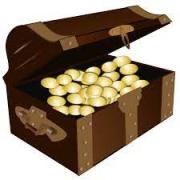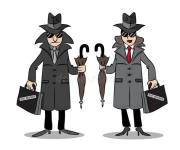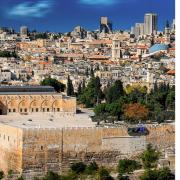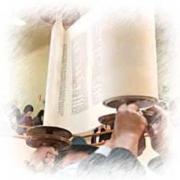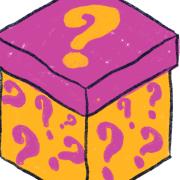Justice, Justice Shall You Pursue
Sometimes, you see a word in the Torah, which triggers a whole new understanding, and once you sit down to write it, it takes you to some uncharted territory where you have never been. As it always goes with anything I write - it is my opinion, an understanding of how I see the passages based on learning the Holy Books. So, with that disclaimer out of the way, let's look at something that is simply amazing. Maybe it may even help you see it in a different light, so perhaps you should even consider using it in some way or form on higher levels. With that said, let's begin.
Parashat Shoftim has plenty of thought-provoking pesukim, but one stands out—at least, it seemed so to me.
Pasuk 16:20: "צֶ֥דֶק צֶ֖דֶק תִּרְדֹּ֑ף לְמַ֤עַן תִּֽחְיֶה֙ וְיָרַשְׁתָּ֣ אֶת־הָאָ֔רֶץ אֲשֶׁר־ה׳ אֱלֹהֶ֖יךָ נֹתֵ֥ן לָֽךְ׃ - Justice, justice shall you pursue, that you may thrive and occupy the land that your G-d Hashem is giving you." I believe this pasuk is the answer to how to bring peace to the nation of Israel or any nation in the world. The key to this would be the word "Justice" which, for some reason, was mentioned two times.
For example, imagine this scenario: Two people come to court because they disagree on some issue. One is rich, and the other is poor. A judge judges the case and announces the verdict. Both are free to go since the case is solved. So, the condition of the first Justice is met.
But why does the Torah include the second word: Justice shall you pursue?
This is when the judge would ask the poor man to stay, and after the rich man has left the courtroom, the judge will start a whole new type of questioning that would go something like this:
Let's say the poor person's name is Chaim. The judge would ask him: "Chaim, I remember, or I have been told, that 20+ years ago you were a pretty successful businessman or had a job, you had a family, or you may even still have one, and you were living a pretty comfortable lifestyle. But I see that something happened during these years, or maybe I shall say "someone happened" during these years, and your life took a wrong turn. Please, tell me about it."
And this is when the judge finds out things were pretty good. He held a job or had a business, but "he crossed someone's path," and that person made it - a goal of his life - to go after him and ruin his life. And so it was. Slowly, he lost his livelihood, his reputation was blemished, and he had to move to a different city. But those people still found him. He couldn't find a job or open a business since no one wanted to associate with him - he was done. All the doors for him were closed.
Years have passed. The money he had saved up from his prosperity years - is gone. Kids were growing up, the wife was nervous, and news about him was all over. So, this is when he was forced to go around and beg for a piece of bread.
There are two ways out of this humiliating situation: suicide - which solves those people's problems but is not a good option for him, or homicide - if he starts to talk about those people, death will be his likely end.
And this is where we come to Parashat Shoftim 21:1-9, which tells us about the Eglah Arufah. The body of a poor person is found in the field between the two cities. The person traveled between the cities to collect enough money for bread to feed himself and his family. But his sin is - he talks about the wrong that was done to him. He is asking people to take up on his cause and do justice on his behalf, and as much as those people try to shut him up by discrediting him, he keeps on talking. They didn't think he would be that stubborn; others were quiet after a few years - but this one won't stop - but finally, now he is dead. And the killer is unknown.
The locals measure the closest location of the corpse to the city that the corpse is closest to. The closest city is assumed to be responsible - meaning he was in that city last and came out from that city so that the killer may be from that city. So, the city's elders, nearest to the corpse, shall take the heifer, which has never worked and never has pulled the yoke. They break its neck, wash their hands, and make the declaration: “‘Our hands did not shed this blood, nor did our eyes see it done. Absolve, Oh L-rd, Your people Israel whom You redeemed, and do not let the guilt for the blood of the innocent remain among Your people Israel.’ And they will be absolved of the bloodguilt. And this will be morally right in the G-d's eyes."
That poor person who is now dead, was collecting charity. Charity or Tzedaka has the same root as the word Tzedek or Justice, when the letters are switched around. Just like Cohen HaGadol's mother is giving out cookies in the Cities of Refuge, so the people residing in those cities should not pray for Cohen HaGadol's early death (Mishna Makot 2:6). Same way, when the poor person that collects charity - it is us, the community that gives him charity - for the time being, postponing a judgment until someone wakes up and does justice on his behalf to those people that caused that poor person all these trouble and suffering.
In the Eglah Arufah case, a person went to collect charity. Since he is known everywhere, they haven't given him much - they have not done Justice due to him, so he is forced to go to another city, and another city, and constantly talk to others because of his pain and frustration to the point where someone who had enough of him, have killed him so to put an end to this.
Comes Torah and says, "Justice, Justice Shall You Pursue." The first Justice is meant to be for the case in front of the Judge—this is what the two parties came for. Judge this case, and let them go in peace.
But the second part is Justice Shall You Pursue - which means finding out how the person got to this point in his life, where the poor person is forced to collect charity and to find those people who have forced this situation upon him. Since they have done it, are doing it, and will do it again in the future, that same proven strategy will be used on others.
While they do what they do best, they always stay under the radar and are considered to be respected members of the society where they live, work, and thrive while on the lookout for those that challenge "their honor".
Do you hear those poor people, walking around with stretched hands and asking for - Justice?! When we - the community - don't do our part to pursue justice on their behalf, the poor scream out to Hashem, and He has to get involved...He Must - which in turn causes all sorts of problems in the Nation.
So what is the secret to thriving and living in the Land that Hashem has given us? And I truly believe the answer would be - Justice, Justice We Shall Pursue!!
To further develop this idea, about justice and more, please see part 2.
Shmuel Katanov






